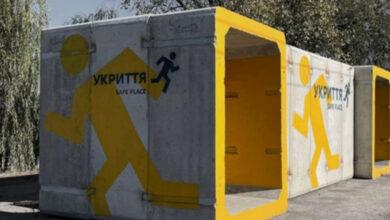Will Radio Liberty celebrate its 75th anniversary? Musk vs.

Radio Svoboda will celebrate its 75th anniversary this year. Will this anniversary take place? Doubts arose after Elon Musk, who is currently working with the administration of US President Donald Trump, called for the closure of the Voice of America and Radio Liberty media projects. Both projects are funded by the US government, and such statements by Musk cast doubt on their future.
“Europe is now free (aside from stifling bureaucracy). No one listens to them anymore. They’re just crazy left-wing radicals talking to themselves, burning $1 billion a year of American taxpayers’ money“, Musk wrote on his page in network X. In fact, his post accompanied a statement by Richard Grenell, the former US ambassador to Germany, who also expressed his critical attitude towards the mentioned media in X. Grenell noted, that “Radio Free Europe/Radio Liberty” and “Voice of America” are funded by American taxpayers and are state media. He also stated that this media is full of far-left activists and outdated, and therefore, in his opinion, they are not needed in today’s world. Musk’s words caused a significant resonance in the media and among the public. In general, this criticism can be formulated in one sentence: Musk’s arrogance is ridiculous, does he think he can rule the world with the help of social networks?
A story that Musk does not know
Initially, “Radio Free Europe” (RFE) and “Radio Liberty” (RS) were separate projects of American foreign broadcasting aimed at the countries of Eastern Europe and the Soviet Union. The idea of their creation belonged to representatives of the US State Department and the CIA, who sought to use the journalistic abilities of Soviet and Eastern European emigrants to promote American foreign policy. Both organizations were initially funded by the US government through the CIA and later directly by the US Congress. In addition, RVE received private donations – in the 1950s, more than 16 million Americans collected more than 1.3 million dollars for it as part of the “Crusade for Freedom” campaign.
The radio began broadcasting in 1950 with the aim of countering Soviet propaganda by providing independent news and analysis to the camp residents who had no access to a free press. The CEE focused on the countries of Eastern Europe, and the RS focused on the Soviet Union. Later, both projects were merged into one organization – RFE/RL, Inc., which still operates today and is funded by the US Congress through the US Agency for Global Media (USAGM).
Thus, historically it was an American foreign language, although now RVE/RS positions itself as an independent media that adheres to the standards of professional journalism. The information policy is formed by each specific national editorial office separately. There is a protective barrier that does not allow the US to influence the content: there are legislative acts and a scheme for organizing work through grants.
The first country to which the programs were broadcast was Czechoslovakia. Soon the ether also covered Bulgaria, Hungary, Poland and Romania.
In fact, radio became a substitute for the free, independent and professional media that countries behind the Iron Curtain lacked. Unlike other Western radio stations that focused on international news, RVE paid special attention to local events that were hushed up by communist governments. In addition to news, programs about religion, science, sports, and Western music were broadcast on the air, as well as discussions of banned literature that could not be read openly in socialist countries.
Later, the USSR (in particular, Russia, Ukraine, Belarus, the Baltic States, the Caucasus and Central Asia), Yugoslavia, Albania and other post-Soviet and post-socialist states joined the broadcasting of Radio Liberty. After the collapse of the USSR and the social camp, the radio expanded its activities, covering Afghanistan, Iran, Iraq and the countries of Central Asia.
The history of the Radio Free Europe/Radio Liberty corporation is full of interesting facts. One of them is the launch of balloons from the territory of West Germany. and an unusual way of conveying information – launching balloons with leaflets and books on the territory of the so-called socialist camp. Inside were leaflets with inscriptions about “new wind” and “new hope”, which called people in the socialist countries to change. The materials also indicated the radio frequencies of the RS broadcast, so that listeners could find alternative sources of information.
Therefore, for many decades in a row, Svoboda radio provided its multinational audience in the Soviet Union and Eastern Europe with facts of Soviet history and modernity, which were hidden from the people and not covered by the official mass media.
Radio Liberty projects in Ukraine
Today, Radio Svoboda is an important information source with offices in Kyiv and Lviv. In particular, in the Svoboda Ranok program, journalists quickly inform listeners about the main events of the previous night, analyze the situation and give predictions about what to expect during the day. They wake up early in the morning so that while the listeners are eating breakfast before work, they can hear the latest news on the air. “There is so much information around that it sometimes seems overwhelming. However, it is not the quantity that matters, but the quality. “Svoboda.Ranok” is primarily about quality news and information hygiene. About what is important and what is worth knowing”, – notes host Oleg Galiv.
In the Lviv editorial office of Radio Liberty, journalists also launched the project “How are you?”, which aims to support those who were driven out of their homes by the war – displaced persons and refugees. The main site of the project is Facebook, where useful information and inspiring stories are published, which help people adapt to new living conditions. In particular, they write about how Ukrainians abroad acquire a new profession in order to get a job; start their own business; helping Americans affected by large-scale fires, etc.
One of the key topics of the editorial office is tracking the deportation of Ukrainian children to Russia. As part of this initiative, the Radio Liberty team cooperates with the journalists of the “Schemes” project. Their joint investigation is the film “List 31”, which highlights the illegal deportation of 31 Ukrainian children from the occupied territories of Donetsk region to Russia in the spring of 2022. The journalists established the identities of these children, traced the route of their removal and identified the persons responsible for organizing the deportation, in particular the leader of the “DPR” group, Denys Pushylin.
A journalistic investigation into the recruitment of Russian mercenaries into the Redoubt group, which is linked to the Russian special services, also became resonant. This is the so-called private military company (PMC), which, according to the investigation, is actually a secret system of recruiting thousands of Russians for the war against Ukraine, controlled by the Main Intelligence Directorate (GRU) of Russia. By in words Andriy Yusov, a representative of the State Administration of Internal Affairs and Communications, journalistic exposure “significantly weakened the capabilities of this unit.”
A separate important area of work is the “Crimea Realities” project, which sheds light on the situation on the occupied peninsula. Journalists provide up-to-date news thanks to correspondents who work even in difficult conditions of occupation. One of the significant initiatives was the creation of an interactive maps of military facilities in Crimea, which received a significant response among the audience. 241 objects with geolocation and detailed description are marked on the map – airfields, fortifications, strongholds, training grounds. Damage to military facilities, strikes, explosions, and fires were recorded.
Radio Liberty journalists work everywhere, including directly on the front lines in Ukraine. They highlight the humanitarian crisis, the lives of civilians and the painful process of exhuming the remains of war victims.
Standards are our Constitution
Photo: IA “FACT”
A year ago, as part of an internship in the Czech media, I had the opportunity to visit the Radio Liberty editorial office in Prague and see with my own eyes how the standard of quality journalism works. Work goes on around the clock. Journalists have very comfortable workplaces, areas for coordination of actions and rest. The national newsrooms are connected by glass stairs, more symbolic than real, because journalists use elevators. Glass symbolizes connections and transparency. There was an interesting conversation with journalist Yakub Tesar.
He spoke convincingly about Radio Liberty’s high journalistic standards and a clear internal system of monitoring their compliance.For us, these standards are like the Constitution, the basis of all editorial decisions, the journalist admitted. — Despite the existence of narratives about connections with American special services, we remain one of the most reliable sources of information, especially in times of crisis, when people turn to us for verified news”.
Procedures of thorough verification may slow down the efficiency of the release of materials, but this is a guarantee of the reliability of the information. “”The “radio” in our name can be misleading – in fact, it is a powerful multimedia platform that retains its historical heritage from the Cold War era and continues to evolve according to modern requirements“, explained Yakub Tesar. He placed special emphasis on the investigative direction of Radio Liberty:
Project “Schemes: Corruption in Details” is a vivid example of our commitment to quality journalism — a true showcase of investigative investigations.“
Therefore, Radio Liberty continues to be an important source of information in wartime, focusing on the truth, supporting people, and covering important social issues. “Radio Liberty” sees its mission as promoting democratic values and institutions by addressing the audience in those countries where press freedom is limited by the authorities or has not yet become the norm of public life. On the territory of the aggressor country, the two media outlets that Elon Musk encroached on became the first media outlets to be declared “foreign agents”.





